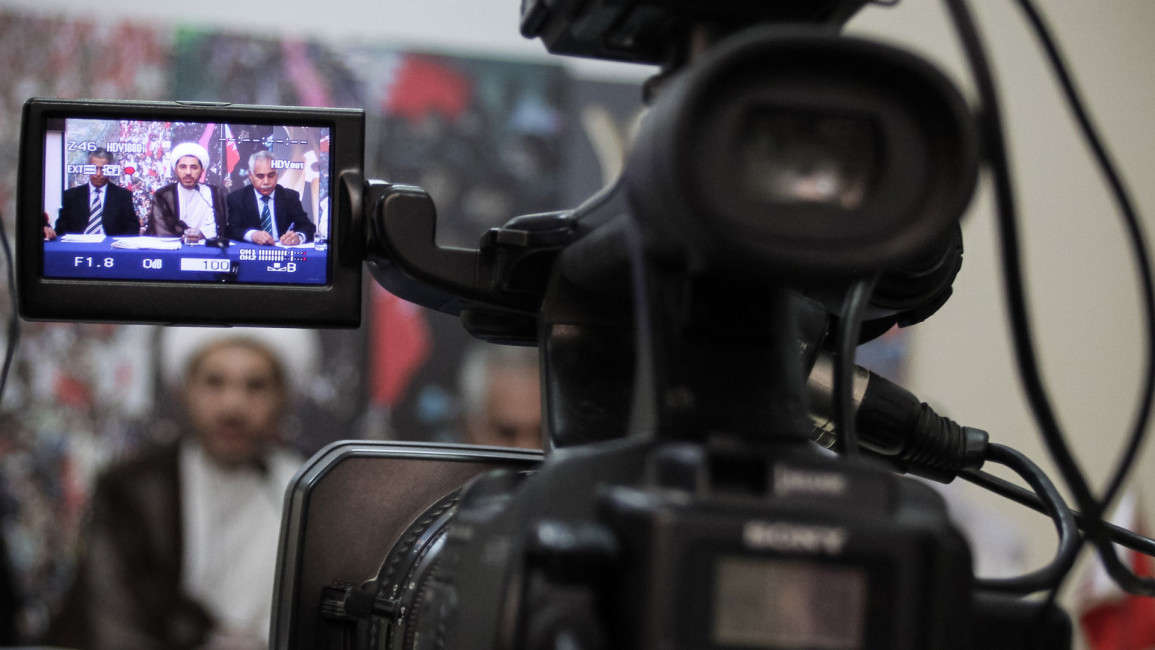Government, opposition trade accusations after Bahrain vote
Bahrain yesterday held its first parliamentary election since the government crushed a pro-democracy uprising in 2011, but under an opposition boycott of a poll characterised as a farce.
With vote-counting underway, both sides traded barbs over voter-turn-out as well as electoral malpractice. The government says turn-out exceeded 50 percent. The opposition claims nor more than 30 percent voted.
Both sides also accused the other of trying to intimidate voters.
| Turnout for the legislative elections was 51.5 percent... (and this result) puts an end to confessionalism in Bahrain - Khaled al-Khalifa |
Talks on political reforms in the Sunni-led Shia majority country broke down earlier this year without progress, leading to a royal declaration setting the date for yesterday's elections and a boycott by the main opposition al-Wefaq party.
Bahraini opposition and government leaders blame each other for that breakdown. The opposition boycott, meanwhile, means voter turn-out has become an all-important measure of the legitimacy of the elections.
Protestors had taken to the streets in several Shia villages, where clashes broke out with security forces. The government accused the opposition of arranging the demonstrations in order to prevent people from voting.
The opposition, meanwhile, said the government had tried to force people to vote by suggesting that if they didn't it might have repurcussions for employment in the public sector. The government is Bahrain's largest employer.
As for the numbers, the government was "trying to fool public opinion and ignore the large election boycott by announcing exaggerated figures," the opposition said in a statement published early Sunday.
Polls closed two hours later than scheduled after a last-minute decision by the electoral commmission. There was no official explanation, but the move was likely sparked by fears of a low turn-out.
Election commisioner Sheikh Khaled al-Khalifa, who is also justice minister, said Saturday initial estimates showed 51.5 percent of registered voters turned out to vote, claiming a victory for the government.
"Turnout for the legislative elections was 51.5 percent... (and this result) puts an end to confessionalism in Bahrain," he said in reference to the Shia-led opposition's boycott call.
Almost 350,000 Bahrainis had been called to elect a 40-member parliament, with most of the 266 candidates Sunnis.
Talks breakdown
The government has rejected accusations that elections were gerrymandered.
The first deputy chairman of the royally appointed Shura Council, Jamal Fakhro, told al-Araby al-Jadeed on Friday that the current electoral system was fair, and allowed the opposition to forge alliances to become the largest bloc in parliament.
Fakhro told al-Araby al-Jadeed that he rejected al-Wefaq's boycott of the election, saying attempts to disrupt voting "will not stop the democratic process... whoever wants to participate should join the parliament, because that’s right place for political dialogue."
Al-Wefaq boycotted the elections after the breakdown of talks earlier this year, and the redrawing of electoral boundaries it says were designed to cut its political representation.
King Hamad Bin Isa al-Khalifa issued a decree on 25 September calling for today's elections that also determined the new electoral boundaries. Government sources said the decree was based on the outcome of the talks with the opposition.
However, the opposition denies this, saying there was no consensus on any of the five topics being negotiated - electoral districts, votes of confidence in the government, the role of the judiciary, security, and the role of the appointed upper house of parliament (the Shura Council).
On the eve of voting, sources close to the government told al-Araby al-Jadeed that opposition leaders were offered a draft deal earlier this year that would have given them control of at least half of seats in parliament.
The initiative, these sources said, also guaranteed the opposition eight of 20 ministries, including major ones such as the ministry of finance. Loyalist politicians would get eight others, and the royal family would control a further four.
But the former al-Wefaq MP, Ali al-Aswad, said the opposition never received the deal in writing, and denied it was ever offered any major ministries.
This article is an updated edited translation from our Arabic edition.



![President Pezeshkian has denounced Israel's attacks on Lebanon [Getty]](/sites/default/files/styles/image_684x385/public/2173482924.jpeg?h=a5f2f23a&itok=q3evVtko)



 Follow the Middle East's top stories in English at The New Arab on Google News
Follow the Middle East's top stories in English at The New Arab on Google News


